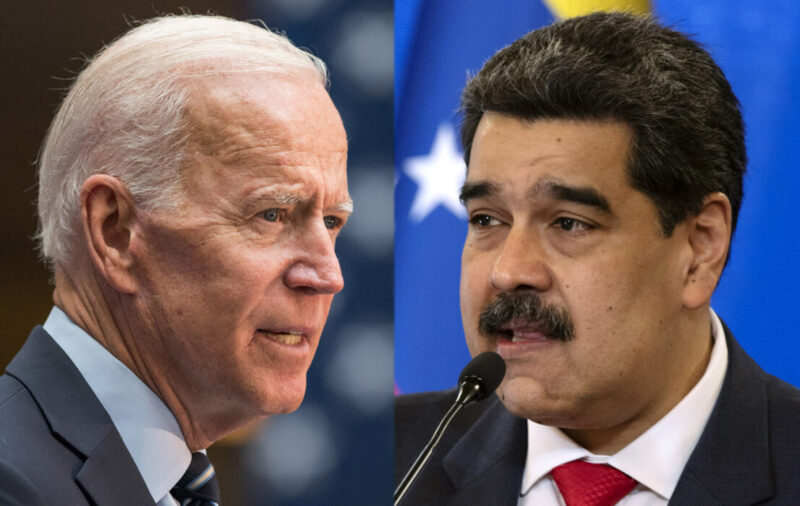Biden Imposes Sanctions Against Venezuela
The Biden administration announced on Wednesday that it would be reimposing oil sanctions on Venezuela, citing a failure of President Nicolás Maduro’s regime to fulfill commitments to holding free and fair elections this year. The decision is a major shift in U.S. policy towards the South American country, which has been mired in political and economic crises for years.
Senior administration officials stated that, in their determination, Maduro’s government had not followed through on key parts of a deal reached last year that offered temporary relief from sanctions in exchange for promises of democratic reforms. Despite some progress under the deal, the U.S. was concerned about the lack of transparency and fairness in the upcoming presidential elections.
Under the temporary sanctions relief, individual countries were able to apply for exemptions on a case-by-case basis. However, the Biden administration has decided not to seek a renewal of this relief, stating that it was focused on the political circumstances in Venezuela rather than economic or migration concerns.
In response to the move, the Maduro regime condemned the U.S. government, accusing it of engaging in “economic aggression.” A spokesperson for the State Department, Matthew Miller, reiterated the administration’s call for Maduro to allow all parties to participate in the electoral process and release all political prisoners.
Treasury officials plan to create a 45-day wind-down period to allow business transactions in Venezuela’s oil and gas sector to be completed in an orderly manner. Going forward, countries can apply for exemptions from the sanctions on a case-by-case basis, suggesting that the U.S. is leaving the door open for potential negotiations with the Maduro regime.
The decision to reimpose sanctions has not been without controversy. The Trump administration’s 2019 sanctions were heavily criticized by Democrats and economists who argued that they worsened the country’s economic crisis and hurt the Venezuelan people. The Biden administration’s temporary easing of sanctions last year was met with fierce blowback from Republican lawmakers and put some Florida Democrats in a difficult political position.
The timing of the announcement is significant, as Venezuela is due to hold presidential elections on July 28. The Maduro regime continues to face increased international and regional scrutiny for its treatment of opposition candidates in the lead-up to the elections.
Last year’s Reconciliation Agreement, brokered in Barbados, was meant to allow greater participation from the opposition in the elections and expand dialogue between the government and opposition parties. In exchange, the U.S. and other countries offered sanctions relief contingent on the fulfillment of the agreement.
However, the Venezuelan government disqualified leading opposition candidate María Corina Machado and blocked alternative candidate Dr. Corina Yoris from appearing on the ballot. These actions prompted outrage from countries in the region and brought further attention to the lack of democratic processes in Venezuela.
The reimplementation of oil sanctions will likely exacerbate the country’s economic challenges, which have been ongoing for over a decade and have sparked a major migration crisis in the region. The Venezuelan government, under former President Hugo Chávez, relied heavily on oil revenues to finance social and public spending. However, the decline in oil production and a brain drain caused by the economic crisis resulted in a 50% decrease in output by 2013.
The drop in oil prices in the mid-2010s further devastated the economy, leading to hyperinflation and a major contraction. This economic crisis has driven millions of Venezuelans to flee the country, seeking refuge in neighboring countries and attempting to cross the U.S. border with Mexico.
The decision to reimpose sanctions is likely to have a significant impact on the economic and political situation in Venezuela, and it remains to be seen how the Maduro regime will respond. The international community will be closely monitoring the upcoming elections to see if Maduro’s government follows through on its commitment to democratic reforms.

